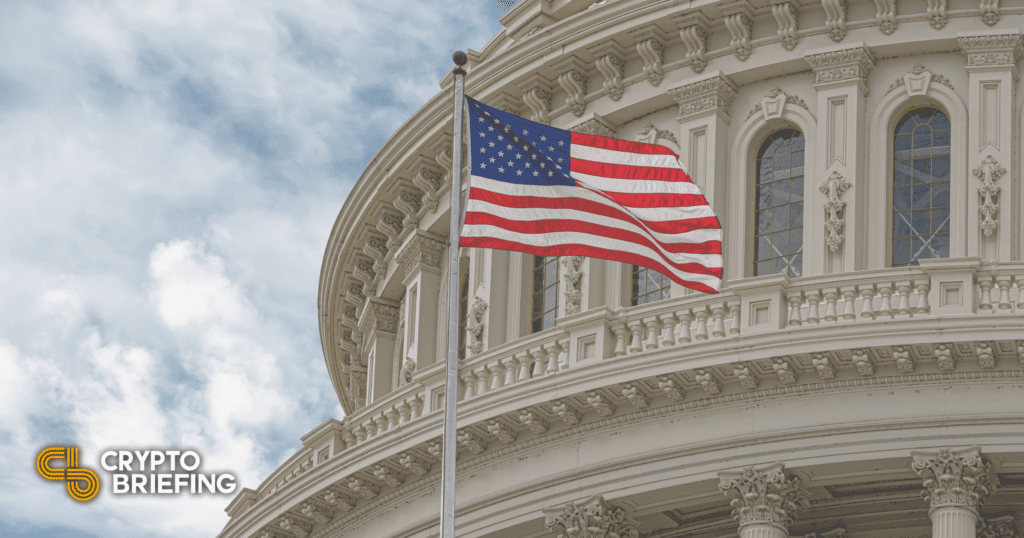
Shutterstock cover by Andrea Izzotti
Senate Passes Vote on Anti-Crypto Infrastructure Bill
The latest text of the infrastructure bill would place stringent tax reporting rules on crypto brokers, which could include Proof-of-Work miners and Proof-of-Stake validators.
After much discussion, the $1.2 trillion infrastructure bill was approved by the Senate with a 69-30 majority. The bill contains a problematic provision concerning the crypto industry as any crypto broker will be required to KYC all of their users.
Senate Regulates All “Crypto Brokers”
The controversial infrastructure bill has passed through the Senate after a 69-30 majority vote.
One of the key issues with the bill lies in the definition of crypto brokers as anyone facilitating transactions. Legal experts have argued that this definition could be expanded to include Proof-of-Work miners, Proof-of-Stake validators, and even protocol developers.
The new provisions would require brokers to go through Know Your Customer procedures and adhere to strict tax reporting guidelines. The $1.2 trillion bill is hoping to raise $28 billion through taxes on the cryptocurrency industry.
Two amendments were presented after the crypto community united in a push against this legislation.
The first amendment put forward by Senators Warner, Sinema, and Portman clarified that Proof-of-Work miners, hardware manufacturers, and service providers would be excluded from being labeled a broker.
The community pushed back against this amendment as it didn’t protect Proof-of-Stake validators, leading many to believe the Senate had targeted Ethereum’s future network upgrade directly to fight the emergent DeFi sector.
This theory was reinforced by reports that Treasury Secretary Janet Yellen personally pushed for this amendment to be passed as DeFi could represent a threat to the current financial system. The White House also came out in support of the Warner-Sinema-Portman amendment.
Three other senators, Lummis, Wyden, and Toomey proposed a different amendment, more crypto-friendly, that found wider support amongst the crypto community.
We’ve been working hard to get a deal. I don’t believe the cryptocurrency amendment language on offer is good enough to protect privacy and security, but it’s certainly better than the underlying bill. Majority Leader Schumer says he won’t block a unanimous consent request on it
— Ron Wyden (@RonWyden) August 9, 2021
In the end, a joint amendment from every senator involved was put together. As the amendment was brought forward too late, it needed a unanimous consensus to pass. Senator Richard Shelby was the only one to block the bipartisan amendment after he was rejected from making his own amendment, a $50 billion increase in military spending, to the bill.
No amendments to the crypto provisions in the infrastructure bill were taken into account. With today’s vote, the bill has received the approval of the Senate. Jerry Brito, the executive director of crypto lobbying group Coin Center, urged the crypto community not to give up and outlined the next possible steps to fight the amendment after the bill amendment was rejected yesterday, starting with the House of Representatives vote on the bill.
Disclaimer: The author held ETH, and several cryptocurrencies at the time of writing.
